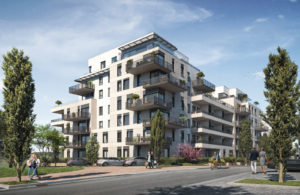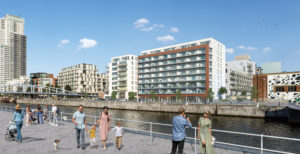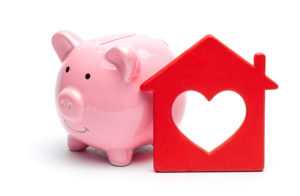THE VARIOUS FEES INVOLVED IN A PURCHASE
- Home
- Latest news
- invest
- THE VARIOUS FEES INVOLVED IN A PURCHASE
Go back to all the latest news
THE VARIOUS FEES INVOLVED IN A PURCHASE
Buying a home on the primary market (new properties) or secondary market (existing properties) entails a number of fees which raise the price of the property by 15 or even 20 percent.
Until 20 years ago, the rules for fees were fairly simple, not least because they applied at national level. Since then, certain matters have been devolved to the Regions, which has increased the number of conditions and exceptions that we set out here, with the advice of the Royal Federation of Belgian Notaries (Fednot).
A. Registration fees on existing properties
“Registration fees” are the costs of filing the deed of sale with the registration authority, which is part of the Federal Public Finance Service. But make no mistake, this is indeed a transfer tax levied on any change of ownership of buildings.
And it doesn’t come cheap, especially when compared with the transfer taxes collected in France (5.81%), the Netherlands (2%) or Germany (from 4 to 6.5%), to mention only our closest neighbours.
This fee must be paid within four months of the signing of the preliminary sale agreement, which is why notaries arrange for the sale to be completed within the same four-month period.
This matter was devolved to the regions in the early 2000s. Before that, the same basic rate of 12.5% was levied throughout the country, together with the same reduced rate of 6% for “modest” houses, i.e. those with a cadastral income below a certain amount.
The first to take advantage of its regional prerogatives was Flanders, in 2002. Not only did it reduce its registration fees to 10% and 5% respectively and offered, under certain conditions, a flat-rate reduction, but it also invented the principle of the “transferability” of these fees.
In 2003, the Brussels region devised its own tax arrangements. Unlike its Flemish counterpart, Brussels did not reduce its fees. On the contrary, it even abolished the reduced fees on modest properties. On the other hand, it did offer a rebate (i.e. a reduction of the tax base) on the first tranche of the purchase price.
As for the Walloon Region, it opted for no change, keeping the rates of 12.5 and 6%, with no rebate.
This was until 2014, when the Federal Government rescinded a tax reduction that it had granted since 2005 to first-time buyers, linked to their mortgage burden: the “housing bonus”.
To continue to support their property markets and allow their citizens to buy their own homes, the Regions have tried to mitigate that loss. And all of them have done so – sometimes in several stages – by adapting their registration fees, by allowing a rebate, a reduced rate, or both. And always by giving priority to owner-occupiers and hence for main residences.
That is the situation today.
B. VAT on new properties
For new properties, both houses and apartments, the situation is simpler: they are not subject to a regional registration fee but are liable for federal VAT at 21%. And the sale combines land (or undivided portions of the land) and buildings.
“New” properties must be sold at the latest by 31 December of the second year following the year in which the property was first occupied or used. A home that was first occupied in 2019, for example, will be classed as new until 31 December 2021 inclusive.
This definition therefore allows the owner of a property that has already been occupied for less than two years to choose to resell it subject to VAT or registration fees. For properties that have never been sold or occupied, VAT is payable.
Properties to be built or under construction are also subject to VAT. On the other hand, the same is not always true for land, normally subject to the registration fee, at regional rates.
This is definitely and quite logically the case for properties to be constructed. The buyer pays a registration fee on the value of the land at the time of purchase and VAT to the contractor as the work progresses.
On the other hand, for properties under construction, the land and building are sold together and subject to VAT. However, they must be sold by the same person and at the same time.
C. Fees for searches and administrative formalities
In order to secure a sale, various search and statutory administrative formalities have to be carried out, some concerning the property, some the owner-vendor, some concerning the deed of sale. These searches relate to tax, urban development, property registration, mortgages, etc., various certificates (about the mortgage, soil remediation, etc.), stamp duty, etc.
These searches and formalities entail costs which are in a sense “advanced” by the notary conducting the sale, and are added to the registration fees. Since 2012, all these costs have been subject to VAT (at 21%).
There is no fixed amount, because every sale is unique (a sale with several vendors costs more than with one) and, in particular, every property is unique (an urban search costs more in some municipalities than in others).
D. Notary’s fees
The notary is a public officer, appointed by the King. He carries out this public service as a licensed professional. He therefore operates in both the public and the private sectors at the same time. He is paid fees, but these are set by royal decree and are the same for all notaries. If several notaries are involved in the sale (and in the context of a property sale there are often two, one representing the vendor, the other the purchaser), the fees are shared between them, without any additional costs.
These fees cover the running costs of the notary’s chambers and recompense the notary for his work and his responsibility.
Since 2012, they have been subject to VAT (at 21%).
E. Mortgage fees
Most purchases are made by means of a loan guaranteed by a mortgage on the property. This requires a second notarial deed establishing a mortgage in favour of the financial institution. This deed entails costs (costs and fees of the mortgage registrar, notarial fees, costs of the deed) and must be registered (fees of 1% on the amount of the mortgage and certain costs advanced by the financial institution). A charge of 0.3% is also levied for the registration of the mortgage. Some fees are charged on a sliding scale, so it is impossible to express them as an exact percentage.




